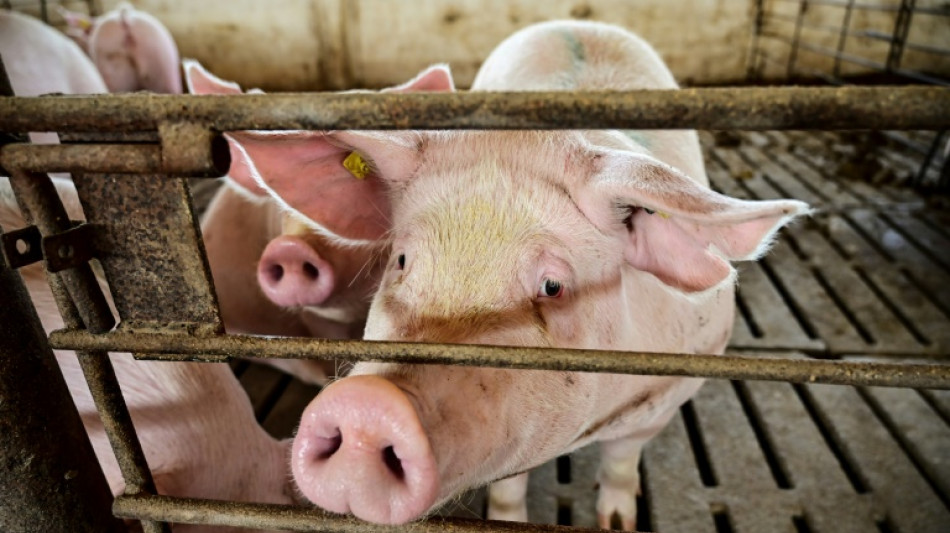
-
 Spaniard condemns 'ignorant drunks' after Melbourne confrontation
Spaniard condemns 'ignorant drunks' after Melbourne confrontation
-
Philippines to end short-lived ban on Musk's Grok chatbot

-
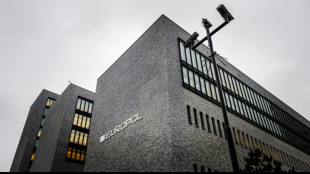 Police smash European synthetic drug ring in 'largest-ever' op
Police smash European synthetic drug ring in 'largest-ever' op
-
Japan to restart world's biggest nuclear plant Wednesday

-
 South Korean ex-PM Han gets 23 years jail for martial law role
South Korean ex-PM Han gets 23 years jail for martial law role
-
Alcaraz, Sabalenka, Gauff surge into Australian Open third round

-
 Over 1,400 Indonesians left Cambodian scam groups in five days: embassy
Over 1,400 Indonesians left Cambodian scam groups in five days: embassy
-
Raducanu to 're-evaluate' after flat Australian Open exit

-
 Doncic triple-double leads Lakers comeback over Nuggets, Rockets down Spurs
Doncic triple-double leads Lakers comeback over Nuggets, Rockets down Spurs
-
Bangladesh will not back down to 'coercion' in India T20 World Cup row
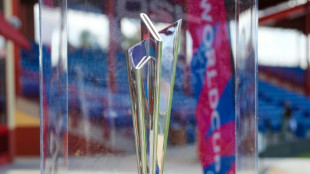
-
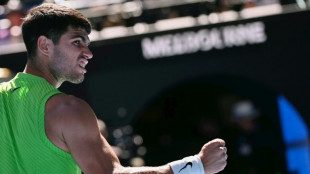 Alcaraz comes good after shaky start to make Australian Open third round
Alcaraz comes good after shaky start to make Australian Open third round
-
Trump departs for Davos forum again after switching to new plane: AFP

-
 Impressive Gauff storms into Australian Open third round
Impressive Gauff storms into Australian Open third round
-
Dazzling Chinese AI debuts mask growing pains

-
 Medvedev battles into Melbourne third round after early scare
Medvedev battles into Melbourne third round after early scare
-
Denmark's Andresen upstages sprint stars to take Tour Down Under opener

-
 Turkey's Sonmez soaks in acclaim on historic Melbourne run
Turkey's Sonmez soaks in acclaim on historic Melbourne run
-
Sheppard leads Rockets to sink Spurs in Texas derby

-
 Sabalenka shuts down political talk after Ukrainian's ban call
Sabalenka shuts down political talk after Ukrainian's ban call
-
Trump's plane returns to air base after 'minor' electrical issue: White House

-
 Barcelona train crash kills 1 in Spain's second deadly rail accident in days
Barcelona train crash kills 1 in Spain's second deadly rail accident in days
-
North produces enough nuclear material a year for 10-20 weapons: S. Korea president

-
 Japan ex-PM Abe's alleged killer faces verdict
Japan ex-PM Abe's alleged killer faces verdict
-
Climate change fuels disasters, but deaths don't add up

-
 Stocks stable after tariff-fuelled selloff but uncertainty boosts gold
Stocks stable after tariff-fuelled selloff but uncertainty boosts gold
-
What growth?: Taiwan's traditional manufacturers miss out on export boom
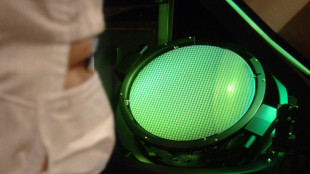
-
 'Super-happy' Sabalenka shines as Alcaraz gets set at Australian Open
'Super-happy' Sabalenka shines as Alcaraz gets set at Australian Open
-
With monitors and lawsuits, Pakistanis fight for clean air

-
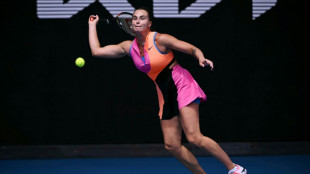 Sabalenka sets up potential Raducanu showdown at Australian Open
Sabalenka sets up potential Raducanu showdown at Australian Open
-
Chile president picks Pinochet lawyers as ministers of human rights, defense

-
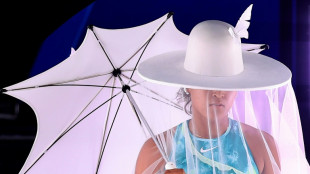 Osaka says 'I'm a little strange' after Melbourne fashion statement
Osaka says 'I'm a little strange' after Melbourne fashion statement
-
UN report declares global state of 'water bankruptcy'

-
 Trump heads for Davos maelstrom over Greenland
Trump heads for Davos maelstrom over Greenland
-
Ukraine's Oliynykova wants Russian, Belarusian players banned from tennis

-
 Kasatkina cannot wait to be back after outpouring of Melbourne support
Kasatkina cannot wait to be back after outpouring of Melbourne support
-
Chile blaze victims plead for help from razed neighborhoods

-
 Russian minister visits Cuba as Trump ramps up pressure on Havana
Russian minister visits Cuba as Trump ramps up pressure on Havana
-
World order in 'midst of a rupture': Canada PM Carney tells Davos

-
 Senegal's 'historic' AFCON champs honoured with parade, presidential praise
Senegal's 'historic' AFCON champs honoured with parade, presidential praise
-
Audi unveil new car for 2026 Formula One season

-
 Man City humiliated, holders PSG stumble, Arsenal remain perfect
Man City humiliated, holders PSG stumble, Arsenal remain perfect
-
Vinicius, Real Madrid need 'love' not whistles: Bellingham

-
 Late Suarez winner stops Champions League holders PSG in Lisbon
Late Suarez winner stops Champions League holders PSG in Lisbon
-
Frank seeks Spurs 'momentum' after beating Dortmund

-
 Jesus' 'dream' brace at Inter fires Arsenal into Champions League last 16
Jesus' 'dream' brace at Inter fires Arsenal into Champions League last 16
-
US regulator appeals Meta's court victory in monopoly case

-
 Netflix shares fall as revenue appears to stall
Netflix shares fall as revenue appears to stall
-
Tottenham beat 10-man Dortmund to hand Frank stay of execution

-
 Mbappe, Vinicius help Real Madrid thrash Monaco in Champions League
Mbappe, Vinicius help Real Madrid thrash Monaco in Champions League
-
Men's Fashion Week kicks off in Paris with Louis Vuitton show


Scientists grow human-like kidneys in pigs
Chinese scientists have succeeded in growing kidneys containing human cells in pig embryos, a world first that could one day help address organ donation shortages.
But the finding, published in a study in the journal Cell Stem Cell on Thursday, raises ethical issues -- especially since some human cells were also found in the pigs' brains, experts said.
The researchers from the Guangzhou Institutes of Biomedicine and Health focused on kidneys because they are on the first organs to develop, and the most commonly transplanted in human medicine.
"Rat organs have been produced in mice, and mouse organs have been produced in rats, but previous attempts to grow human organs in pigs have not succeeded," senior author Liangxue Lai said in a statement.
"Our approach improves the integration of human cells into recipient tissues and allows us to grow human organs in pigs."
This is a different approach to the recent high-profile breakthroughs in the United States, where genetically modified pig kidneys and even a heart have been placed inside humans.
The new paper "describes pioneering steps in a new approach to organ bioengineering using pigs as incubators for growing and cultivating human organs," said Dusko Ilic, a professor of stem cell sciences at King's College London who was not involved in the research.
Ilic cautioned there would be many challenges to turning the experiment into a viable solution, but "nevertheless, this captivating strategy warrants further exploration."
- Gene editing -
A major challenge in creating such hybrids has been that pig cells outcompete human cells.
To overcome the obstacles, the team used CRISPR gene editing to delete two genes essential for kidneys to form inside a pig embryo, creating what's called a "niche."
They then added specially prepared human pluripotent stem cells -- cells that have the potential to develop into any cell type -- which filled the niche.
Before implanting the embryos in sows, they grew them in test tubes containing substances that nourished both the human and pig cells.
In total, they transferred 1,820 embryos into 13 surrogate mothers. The pregnancies were terminated at 25 and 28 days to assess how the experiment had worked.
Five embryos selected for analysis were found to have functionally normal kidneys for their stage of development. They contained between 50 and 60 percent human cells.
"We found that if you create a niche in the pig embryo, then the human cells naturally go into these spaces," said co-author Zhen Dai.
"We saw only very few human neural cells in the brain and spinal cord and no human cells in the genital ridge."
But the presence of any human cells in the pig brains raises concerns, said Darius Widera, a professor of stem cell biology at the University of Reading.
"Although this approach is a clear milestone and the first successful attempt to grow whole organs containing human cells in pigs, the proportion of human cells in the generated kidneys is still not high enough," he added.
In the long run, the team wants to optimize their technology for use in human transplantation, but admits it's not ready yet.
An important limitation was the kidneys had pig-derived vascular cells, which could cause rejection if transplanted into a human.
Nevertheless, the team is already working on growing other human organs in pigs such as the heart and pancreas.
A.Kunz--VB




